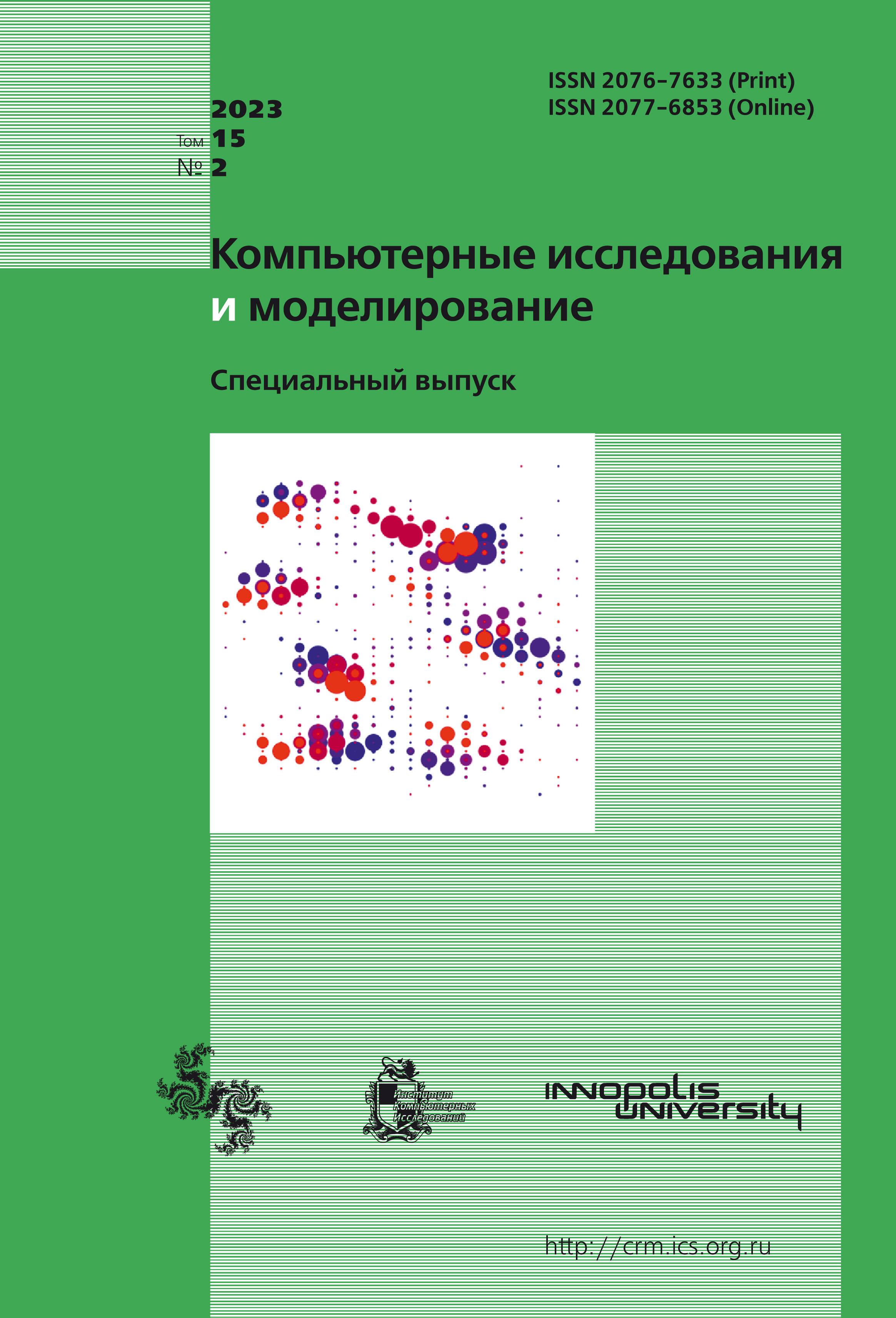All issues
- 2025 Vol. 17
- 2024 Vol. 16
- 2023 Vol. 15
- 2022 Vol. 14
- 2021 Vol. 13
- 2020 Vol. 12
- 2019 Vol. 11
- 2018 Vol. 10
- 2017 Vol. 9
- 2016 Vol. 8
- 2015 Vol. 7
- 2014 Vol. 6
- 2013 Vol. 5
- 2012 Vol. 4
- 2011 Vol. 3
- 2010 Vol. 2
- 2009 Vol. 1
On Accelerated Methods for Saddle-Point Problems with Composite Structure
We consider strongly-convex-strongly-concave saddle-point problems with general non-bilinear objective and different condition numbers with respect to the primal and dual variables. First, we consider such problems with smooth composite terms, one of which has finite-sum structure. For this setting we propose a variance reduction algorithm with complexity estimates superior to the existing bounds in the literature. Second, we consider finite-sum saddle-point problems with composite terms and propose several algorithms depending on the properties of the composite terms. When the composite terms are smooth we obtain better complexity bounds than the ones in the literature, including the bounds of a recently proposed nearly-optimal algorithms which do not consider the composite structure of the problem. If the composite terms are prox-friendly, we propose a variance reduction algorithm that, on the one hand, is accelerated compared to existing variance reduction algorithms and, on the other hand, provides in the composite setting similar complexity bounds to the nearly-optimal algorithm which is designed for noncomposite setting. Besides, our algorithms allow one to separate the complexity bounds, i. e. estimate, for each part of the objective separately, the number of oracle calls that is sufficient to achieve a given accuracy. This is important since different parts can have different arithmetic complexity of the oracle, and it is desired to call expensive oracles less often than cheap oracles. The key thing to all these results is our general framework for saddle-point problems, which may be of independent interest. This framework, in turn is based on our proposed Accelerated Meta-Algorithm for composite optimization with probabilistic inexact oracles and probabilistic inexactness in the proximal mapping, which may be of independent interest as well.
Copyright © 2023 Tomonin Y.D., Tominin V.D., Borodich E.D., Kovalev D.A., Dvurechensky P.E., Gasnikov A.V., Chukanov S.V.
Indexed in Scopus
Full-text version of the journal is also available on the web site of the scientific electronic library eLIBRARY.RU
The journal is included in the Russian Science Citation Index
The journal is included in the RSCI
International Interdisciplinary Conference "Mathematics. Computing. Education"







